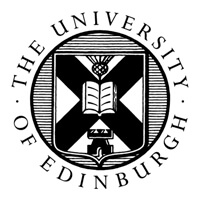Application
fees waived
fees waived
Archaeology, MA (Hons)
The University of Edinburgh, United Kingdom
Apply
Subject ranking
Overall
UK / ARWU 2024 5th
UK / ARWU 2024 5th
Overall
UK / QS 2025 5th
UK / QS 2025 5th
Overall
UK / THE 2025 5th
UK / THE 2025 5th
Costs
Course feesS$48K / year
Entertainment, books
food & rentS$17.1K / year
food & rentS$17.1K / year
Beer
S$9
MacDonalds
S$11
Cinema
S$17
Coffee
S$5
TotalS$65.2K / year
Entry requirements
A Level
AAB
International Baccalaureate
36
Scholarships
British Chevening Scholarships
100% for tuition and living expenses
Limited quantity
Limited quantity
Information
Course
Code
Code
V400
Upcoming
Intakes
Intakes
Sep 2025
Course
Website (External)
Website (External)
Pathway
Programmes
Programmes
See pathways
University
Information
Information
WHATSAPP
+65 9650 3225
HOTLINE
+65 6333 1300
Duration
4
years
Graduate
2029
2029
About the course
Course summary
Archaeology is the study of the human past from our origins several million years ago to recent times. While historians are primarily concerned with oral, written and transcribed accounts of the past, archaeologists use material remains to study the lives, societies and cultures of past peoples. What the programme coversThis programme:
- covers current thinking on some of the best known and most spectacular archaeological sites
- considers the most pressing questions in archaeological research
- provides an introduction to the tools and skills archaeologists use to reconstruct the past
- human evolution
- later hunter-gatherers
- the first farmers
- the later prehistoric societies of the Iron Age
- further fieldwork
- projects in heritage management and public engagement
- lab-based analysis of archaeological remains
A local representative of The University of Edinburgh in Singapore is available online to assist you with enquiries about this course.

